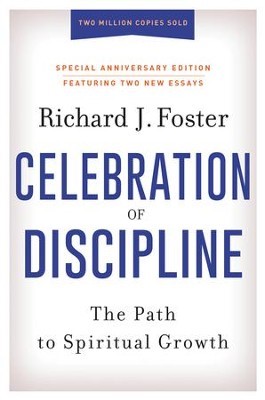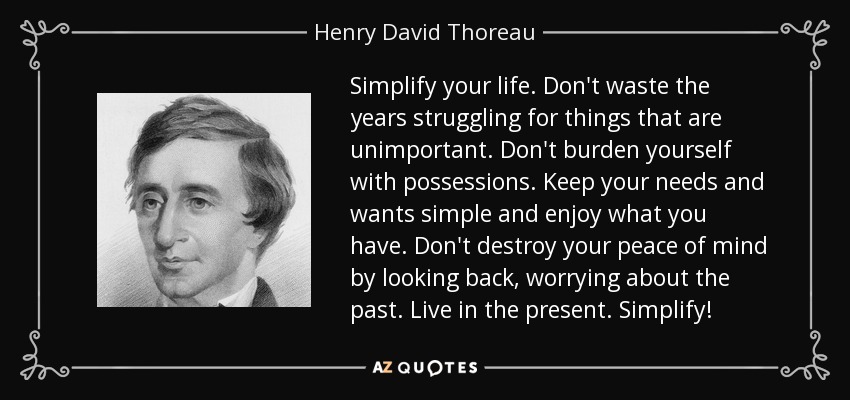Click here to return to Blog Post Intro

We join the experience that Richard E. Byrd, after months alone in the barren Arctic, recorded in his journal:
Contemporary culture lacks both the inward reality and the outward life-style of simplicity.
This psychosis permeates even our mythology. The modern hero is the poor boy who purposefully becomes rich rather than the rich boy who voluntarily becomes poor. (We still find it hard to imagine that a girl could do either!) Covetousness we call ambition. Hoarding we call prudence. Greed we call industry.
We should take exception to the modern psychosis that defines people by how much they can produce or what they earn.
Jesus declared war on the materialism of his day. (And Foster suggests that he declares war on the materialism of our day as well.) The Aramaic term for wealth is “mammon” and Jesus condemns it as a rival God: “No servant can serve two masters; for either he will hate the one and love the other, or he will be devoted to the one and despise the other. You cannot serve God and mammon” (Luke 16:13).
Jesus spoke frequently and unambiguously to economic issues. He said, “Blessed are you poor, for yours is the kingdom of God” and “Woe to you that are rich, for you have received your consolation” (Luke 6:20, 24).
Simplicity is the only thing that sufficiently reorients our lives so that possessions can be genuinely enjoyed without destroying us. Without simplicity we will either capitulate to the “mammon” spirit of this present evil age, or we will fall into an un-Christian legalistic asceticism. Both lead to idolatry. Both are spiritually lethal.
Simplicity sets us free to receive the provision of God as a gift that is not ours to keep and can be freely shared with others.
The central point for the discipline of simplicity is to seek the kingdom of God and the righteousness of his kingdom first and then everything necessary will come in its proper order.
Simplicity itself becomes idolatry when it takes precedence over seeking the kingdom. In a particularly penetrating comment on this passage of Scripture, Søren Kierkegaard considers what sort of effort could be made to pursue the kingdom of God. Should a person get a suitable job in order to exert a virtuous influence? His answer: “No, we must first seek God’s kingdom.” Then should we give away all our money to feed the poor? Again the answer: “No, we must first seek God’s kingdom.”
As Jesus made clear, freedom from anxiety is inward evidence of seeking first the kingdom of God. The inward reality of simplicity involves a life of joyful unconcern for possessions. Freedom from anxiety is characterized by three inner attitudes.
1. To receive what we have as a gift from God.
2. To know that it is God’s business, and not ours, to care for what we have.
God is able to protect what we possess. We can trust him.
3. To have our goods available to others.
If our goods are not available to the community when it is clearly right and good, then they are stolen goods. The reason we find such an idea so difficult is our fear of the future. We cling to our possessions rather than sharing them because we are anxious about tomorrow.
When we are seeking first the kingdom of God, these three attitudes will characterize our lives.
To experience the liberating spirit of simplicity will affect how we live.
Consider the following ten principles for the outward expression of simplicity:
1. Buy things for their usefulness rather than their status.
Cars should be bought for their utility, not their prestige. Consider riding a bicycle. When you are considering an apartment, a condominium, or a house, thought should be given to livability rather than how much it will impress others.
Stop trying to impress people with your clothes and impress them with your life.
John Wesley writes, “As . . . for apparel, I buy the most lasting and, in general, the plainest I can. I buy no furniture but what is necessary and cheap.”
2. Reject anything that is producing an addiction in you.
Learn to distinguish between a real psychological need, like cheerful surroundings, and an addiction. Eliminate or cut down on the use of addictive, non-nutritional drinks: alcohol, coffee, tea, Coca-Cola, and so on.
Any of the media that you find you cannot do without, get rid of: radios, stereos, magazines, videos, newspapers, books. If money has a grip on your heart, give some away and feel the inner release. Simplicity is freedom, not slavery. Refuse to be a slave to anything but God.
3. Develop a habit of giving things away.
If you find that you are becoming attached to some possession, consider giving it to someone who needs it.
De-accumulate! Masses of things that are not needed complicate life.
We would do well to follow the counsel of Thoreau: “Simplify, simplify.”
4. Refuse to be propagandized by the custodians of modern gadgetry.
Timesaving devices almost never save time. Beware of the promise, “It will pay for itself in six months.” Most gadgets are built to break down and wear out and so complicate our lives rather than enhance them.
Usually gadgets are an unnecessary drain on the energy resources of the world. The United States has less than six percent of the world’s population, but consumes about thirty-three percent of the world’s energy. Air conditioners in the United States alone use the same amount of energy as does the entire country of China!
5. Learn to enjoy things without owning them.
Owning things is an obsession in our culture. If we own it, we feel we can control it; and if we can control it, we feel it will give us more pleasure. The idea is an illusion.
6. Develop a deeper appreciation for the creation.
Get close to the earth. Walk whenever you can. Listen to the birds. Enjoy the texture of grass and leaves. Smell the flowers.
7. Look with a healthy skepticism at all “buy now, pay later” schemes.
They are a trap and only deepen your bondage. Both Old and New Testaments condemn usury for good reasons. (“Usury” in the Bible is not used in the modern sense of exorbitant interest; it referred to any kind of interest at all.) Charging interest was viewed as an unbrotherly exploitation of another’s misfortune, hence a denial of community.
Jesus denounced usury as a sign of the old life and admonished his disciples to “lend, expecting nothing in return” (Luke 6:35). Certainly prudence, as well as simplicity, demands that we use extreme caution before incurring debt.
8. Obey Jesus’ instructions about plain, honest speech.

Often fear of what others may think or a hundred other motives determine our “yes” or “no” rather than obedience to divine urgings. Then if a more attractive opportunity arises we quickly reverse our decision. But if our speech comes out of obedience to the divine Center, we will find no reason to turn our “yes” into “no” and our “no” into “yes.”
Søren Kierkegaard writes: “If thou art absolutely obedient to God, then there is no ambiguity in thee and…thou art mere simplicity before God… One thing there is which all Satan’s cunning and all the snares of temptation cannot take by surprise, and that is simplicity.”
9. Reject anything that breeds the oppression of others.
In a world of limited resources, does our lust for wealth mean the poverty of others? Should we buy products that are made by forcing people into dull assembly-line jobs? Do we enjoy hierarchical relationships in the company or factory that keep others under us? Do we oppress our children or spouse because we feel certain tasks are beneath us?
Often our oppression is tinged with racism, sexism, and nationalism.
10. Shun anything that distracts you from seeking first the kingdom of God.
It is so easy to lose focus in the pursuit of legitimate, even good things. Job, position, status, family, friends, security—these and many more can all too quickly become the center of attention.
As Foster puts it, “May God give you—and me—the courage, the wisdom, the strength always to hold the kingdom of God as the number-one priority of our lives. To do so is to live in simplicity.”



